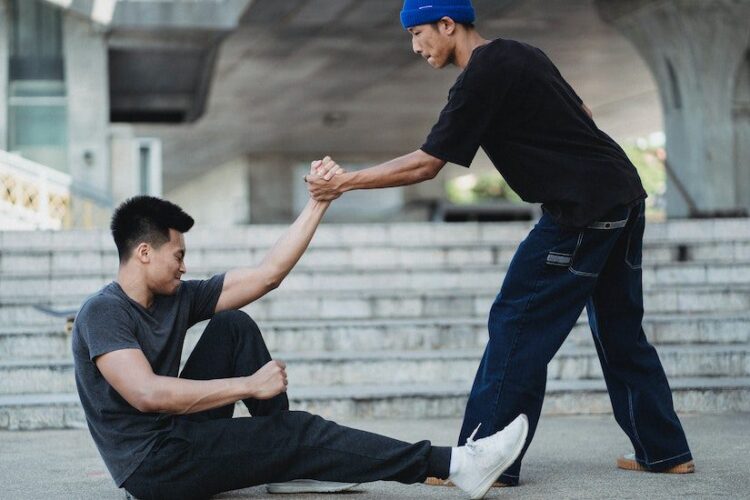Many things in life are challenging—and sometimes we convince ourselves that something that is hard or challenging is, in fact, impossible.
But most challenges can be overcome if we put our minds to it. Many things that seem all but undoable may, with effort and dedication, turn out to be…well…doable.
Here’s an example: Imagine someone came to you and asked you to create a 44-foot metal sculpture of a Native American that would become a centerpiece and point of pride for an entire city. That is a pretty big ask—even if you are a sculptor by trade. Honoring the history of Native Americans in an authentic way, creating something that will be embraced by a whole community, and figuring out the physics of the whole thing are just some of the challenges that come to mind.
It might just be easier to walk away from those challenges rather than leaning into them, right? But fortunately for the people who live and work in Wichita, artist Blackbear Bosin was up to the task. Bosin created the Keeper of the Plains, the beautiful and meaningful sculpture standing at the spot where the Big and Little Arkansas Rivers commingle in downtown Wichita. Since its installation in May of 1974 (the sculpture was part of the celebration of the United States Bicentennial in 1976), the Keeper of the Plains has been a gathering spot for locals and visitors alike. This has become even more true since the renovation and raising of the Keeper and the installation of five large fire pots lighted nightly in a “ring of fire” around the sculpture (weather and other conditions permitting, of course).
The Keeper of the Plains is a perfect example of what can be accomplished when challenges are met head on.
And What Does This Have to Do With Recovery?
Even if you are a devoted fan of the Keeper of the Plains, there is a reasonable chance that you are wondering what any of this had to do with recovery from a substance use disorder.
The connection is simple really: Getting and staying sober can be hard, but people do hard things all of the time. You can, too.
It might not seem like it right now. If you are in the grips of a substance use disorder, it may well seem like there is no way to escape. When you drink or use drugs, you feel awful. When you try to stop on your own, you also feel awful. The symptoms of withdrawal can be devastating. The impact of continuing to use drugs or alcohol can also be devastating. Rock, meet hard place.
But think about Bosin when he first got the commission to create the Keeper. The challenge had to seem enormous. Odds are the artist felt some degree of self-doubt. There were no doubt difficulties to overcome along the way. But in the end, his dedication to his work led to the creation of an icon that thousands upon thousands of people have enjoyed over the years.
But here is another important thing to keep in mind: Bosin’s accomplishment was not a solo endeavor. From the city leaders who needed to approve the project to the construction workers who built the bridge, plaza, and pedestal features that highlight the statue to the swarms of nightly visitors, the Keeper of the Plains is a success because many people believed something special could be created where the two rivers come together.
Similarly, getting sober is not a solo project. The best way to regain your sobriety and learn how to maintain it over time is to get treatment at a certified recovery center—a place like Bel Aire Recovery Center.
The Plain Truth: We Can Help You Get Sober
At Bel Aire Recovery Center, just a short drive from Wichita, we offer medically supervised detoxification to help you get past the difficulties associated with withdrawal. Then, we provide rehabilitation services that include group and individual therapy, and which address any co-occurring mental health disorders as well. And our commitment to you does not end when you leave the recovery center. Instead, you will be supported by our continuum of care designed to offer you the support and strategies you need to maintain your sobriety. In the event of a relapse, we will repeat and fine tune your treatment so that you can begin your recovery journey again.
You can do hard things—including getting sober. We are here to help.




